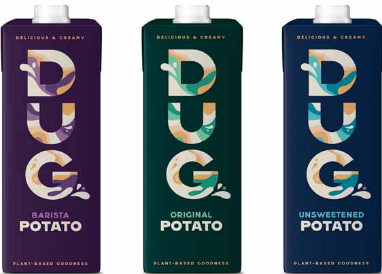February 2022
February always goes fast compared to January, but it’s still been a busy month. In 'News' we share with you a few reflections on the Levelling Up White Paper which was released on February the 2nd; our ‘Policy Insight’ piece on the ‘baby-shaped blind spot’ in the National Food Strategy, which was released on February 8th; and some highlights from the ever evolving plant milk market. In 'Infant Milk News' we share with you a re-brand, some discontinued products and an important recall notice. As secretariat of the Baby Feeding Law Group UK, we share with you news of a small but important change in the infant formula and follow-on formula regulations and highlight an important new report from the WHO on how the marketing of formula milk influences our decisions on infant feeding. Happy reading.
News
Levelling Up White Paper: Reflections from an early years food and nutrition perspective
On February the 2nd, the Government released the Levelling Up White Paper. The executive summary explains “Levelling up means … people everywhere living longer and more fulfilling lives, and benefitting from sustained rises in living standards and well-being”. The content on babies and young children falls under this ambitious mission (one of 12): “By 2030, the gap in Healthy Life Expectancy (HLE) between local areas where it is highest and lowest will have narrowed, and by 2025 HLE will rise by five years”.
We are told that the DHSC will shortly publish a White Paper on Health Disparities, tackling the core drivers of disparities in health outcomes, which sounds promising (although the lack of attention to the social determinants of health has been highlighted as an important omission; see Michael Marmot’s opinion in the BMJ). And in the meantime, we are reminded of the UK Government’s promised £300 million investment in Family Hubs and planned transformation of Start for Life services for parents and babies, carers and children in half of the local authorities in England. This investment is laudable and will no doubt ensure more families can access better information and support for breastfeeding, infant feeding and eating well in the early years. But given that health visitor numbers are at an all-time low, it needs to come with more funding for more staff if the services are actually to be delivered as planned.
The White Paper tells us that poor diet and obesity (“one of the biggest contributors to ill health”) will be dealt with now, by taking forward recommendations from the independent review towards a National Food Strategy, including piloting Community Eatwell (fruit and veg and other social support on prescription) and a ‘school cooking revolution’. It is commendable that the government are committed to developing a National Food Strategy “to help ensure that everyone can access, understand, and enjoy the benefits of a healthy and sustainable diet”. We can only hope that the baby-shaped blind spot we’ve highlighted in the Independent Review is being acknowledged behind the scenes (read more below).
Overall, we’re left with the familiar feeling that this White Paper has not systematically considered infants and young children, and that it is assumed that whatever needs aren’t covered in this particular policy document are dealt with elsewhere. Let’s hope that the various policy making endeavours underway join up so that is the case.
Policy Insight: The baby-shaped blind spot in the National Food Strategy: What it is and why it’s important
We still eagerly await the government White Paper response to the National Food Strategy (or more precisely, the Final Report of the Independent Review for the promised National Food Strategy), which lays out a vision and plan for a healthier and more sustainable food system. This new policy briefly outlines our thoughts on the Independent Review from an early years food and nutrition perspective. In our view, it fails to acknowledge the particular food and nutrition requirements of babies and young children, and the factors which make eating well a challenge for many young families.
This is a serious omission: if the way we feed our children in their earliest years is left out of food policy, we can make little progress in tackling rising rates of overweight or embedding eating habits that support sustainability.
The eight recommendations within build on the proposals of the Independent Review and would put infant and young child nutrition back into the White paper and National Food Strategy.
Read the policy report here.
Observations on the plant-based milks market
We’ve been keeping half an eye on the new product development in plant-based milks and the latest innovations have piqued our interest. As the trend towards eating more plant-based foods has grown, the variety of plant-based milk alternatives on the market has expanded rapidly.
Since our report Plant-based milk alternatives in the diets of 1-4 year-olds, the Swedish brand DUG has introduced a range of plant based milk alternatives made from potatoes. The manufacturers make significant claims about the sustainability credentials of their products and this is reflected in their current marketing.
Each of the three available versions of DUG are made from water, potato, rapeseed oil and pea protein and are fortified with calcium, vitamin D, Riboflavin, vitamin B12 and folic acid. Their nutritional composition therefore bears little resemblance to that of an unprocessed potato. Like many plant-based milks, DUG potato milk is lower in protein and energy than cows’ milk and the original and barista versions have the added sugars maltodextrin, fructose and sucrose.
Alpro have also introduced a new product, adding a high protein soya milk drink to their range. As the name suggests, this milk is significantly higher in protein (5g/100ml) than either whole cows' milk (3.4g/100ml) or the brand standard unsweetened, fortified soya milk (3.3g/100ml). Whilst protein is needed for growth and maintaining and repairing body tissues, it has been suggested that excess protein, particularly in the first two years of life, may promote more rapid weight gain (you can read more on this in our report: Enabling children to be a healthy weight).
Regardless of whether a child has an omnivorous, vegetarian or vegan diet, provided that a wide variety of protein rich foods such as meat, fish, dairy products, beans and pulses are eaten, they should be able to meet their protein requirements and it should not be necessary to use a higher protein soya milk.
Whilst none of these products are marketed for children, given the health ‘halo’ that often surrounds plant-based milk alternatives, it is likely that families perceive these products as healthy for the whole family. With that in mind it’s important to remember that breastmilk is the optimum main milk drink in the second year of life, and where young children are no longer receiving breastmilk, the NHS recommend full-fat cows' milk for children from their first to second birthdays. Full fat cows’ milk makes an important contribution to the provision of energy, macronutrients and micronutrients in young children’s diets in the UK. Plant-based milk alternatives have very variable composition and many have limited nutritional equivalence to animal milk. It is important that families are aware that young children need an energy and nutrient dense diet, and that perceived health benefits of a plant-based diet may not be relevant or health promoting for young children. You can find out more about the use of plant based milks as an alternative to cows' milk in the context of young children’s diets in our briefing paper: Plant-based milk alternatives in the diets of 1-4 year-olds.
Infant Milk News
February has been a busy month for product changes in the infant milk market.
Rebranded products
Aptamil Profutura products are in the process of rebranding and the range is now called “Aptamil Advanced”. The products are the same, and the only changes are in the brand name and the packaging. Unfortunately, in our view the new labelling is no improvement on the old in terms of being able to clearly distinguish between infant formula and follow-on formula as required by law.
Discontinued products
SMA have discontinued their SMA HA infant milk powder. This product contains partially hydrolysed 100% whey protein and was being marketed to reduce the risk of developing allergy to cows’ milk proteins, despite a lack of convincing evidence of effectiveness. See below an update on the regulations which we believe accounts for the discontinuation at this time. Nb. This product will be available from some retailers until the stocks run out.
Nutricia have discontinued their Cow & Gate Simply A2 Infant milk, Simply A2 Follow-on Milk and Simply A2 Toddler Milk. The Cow & Gate Baby club website explains that “At Cow & Gate, we are constantly reviewing our range and have decided to discontinue our Cow & Gate Simply A2 made with A2 protein milk range so that we can focus on our core Cow & Gate products at this time”. The brand was launched in February 2021 and so has been relatively short lived.
Each retailer will stop selling these products at slightly different times between March and July 2022. Products will still be available via Amazon.co.uk until the end of 2022 whilst stocks last.
Reckitt Benckiser have discontinued their ACBS-approved lactose free infant milk Enfamil O-Lac, which was marketed as a Food for Special Medical Purposes. Enfamil O-Lac was listed in the British National Formulary for Children which meant it was available on prescription. However, lactose free milks are also widely available for sale over the counter in supermarkets and pharmacies and are rarely prescribed. Lactose free infant formula that is marketed under infant formula regulations rather than under FSMP regulations can be purchased under the Healthy Start (England, Wales and Northern Ireland) and Best Start Foods (Scotland) schemes. You can find details of other lactose free infant milks on the product pages of our www.infantmilkinfo.org website here.
Recalled products
The US formula company Abbott has issued a global recall for several powdered formula products because of the possible presence of the bacteria Salmonella Newport and Cronobacter Sakazakii. The US Food and Drug Administration are investigating following the hospitalisation of four infants, one of whom tragically died.
The UK Food Standards Agency issued a food alert about this recall on Tuesday 22nd February (updating their first alert on Sunday the 20th), giving details of the affected batches of two infant formula powders which are prescribed Foods for Special Medical Purposes: Elecare Similac (an amino acid based formula) and Alimentum Similac (an extensively hydrolysed formula). The FSA state that: “Symptoms caused by Salmonella and Cronobacter sakazakii usually include fever, diarrhoea and abdominal cramps, although in severe cases may lead to sepsis or meningitis which include symptoms in infants including poor feeding, irritability, temperature changes, jaundice (yellow skin and whites of the eyes) and abnormal breaths and movements”.
This recall is a good reminder of why it is important to ensure parents/carers know, understand and follow NHS advice on safer preparation of powdered infant formulas, which are not, and cannot be made to be, sterile.
The NHS advice is available here and First Steps Nutrition Trust information here.
In addition, First Steps has contributed to a Unicef UK Baby Friendly Initiative statement which is intended to help health care professionals supporting affected parents/carers. The statement can be found here.
Looking for information about infant milks? Check out our website www.infantmilkinfo.org. Still got questions about infant milks? Contact susan@firststepsnutrition.org
Baby Feeding Law Group news
Change in UK regulations
From February 22nd 2022, the regulations governing the composition, marketing and labelling of infant formula and follow-on formula now apply to such products made from hydrolysed proteins. In practice, because most infants milks made with hydrolysed proteins are now marketed as Foods for Special Medical Purposes and must adhere to these regulations (whether warranted or not given the lack of evidence of effectiveness for many of product types), this affects only two partially hydrolysed infant formulas: SMA HA and SMA Advanced, and the partially hydrolysed follow on formula SMA Advanced.
The DHSC’s guidance notes provide further clarification of legislative requirements for England, and the principles are similar throughout Great Britain (Scotland and Wales), including stipulating that “Manufacturers of infant formula and follow-on formula which are made from protein hydrolysates must demonstrate the safety and suitability of each specific formula containing protein hydrolysates has been established by clinical evaluation”. The Guidance Notes are accompanied by an application form for the authorisation of formula manufactured from protein hydrolysates, which sets out the steps which applicants need to follow for the authorisation of protein hydrolysates used in infant and follow-on formula.
A key implication of this change is that the product SMA HA which was marketed with the claim “To reduce the risk of developing allergy to cows’ milk proteins”, has been discontinued. This is insightful because Guidance Notes state: “Providing it has been demonstrated that a specific formula manufactured from protein hydrolysates reduces the risk of developing allergy to milk proteins, further consideration will be given to how to adequately inform parents and caregivers about that property of the product”.
We can only assume that the company had insufficient evidence to submit to support the continued marketing of this product, or that their submitted dossier of evidence was deemed insufficient.
We will be keeping an eye on the labelling and marketing of the SMA Advanced formulas made from hydrolysed proteins in the coming weeks and will address any concerns to the nutrition legislation team at the DHSC. We will also be looking in to what can be done about the way in which companies are preferentially choosing to market certain products as FSMPs instead of as infant formulas.
New report: Marketing the $55 billion formula milk industry
On February 23rd the WHO, UNICEF and partners launched a new report “How the marketing of formula milk influences our decisions on infant feeding”, which draws on interviews with 8,500 parents and pregnant women and 3,000 health care professionals in eight countries, including the UK. It reveals “systematic and unethical marketing strategies” used by industry to influence parents’ infant feeding decisions.
The research uncovered: unregulated and invasive online targeting (you can read more about online infant formula marketing in the UK in our report on this here); sponsored advice networks and helplines; promotions and free gifts; and practices to influence training and recommendations among health care professionals. Consequently, the messages that parents and health workers receive are often misleading, scientifically unsubstatiated and violate the Code.
Across all countries, women expressed a strong desire to breastfeed exclusively, including in the UK where this proportion was 84%. And yet exactly the same proportion of women reported being exposed to formula milk marketing in the previous year. The report says that "The sustained flow of misleading marketing messages reinforces myths about breastfeeding and breast-milk, and undermines women's confidence in their ability to breastfeed successfully".
To address these challenges, WHO, UNICEF and partners are calling on governments, health workers, and the baby food industry to end exploitative formula milk marketing and fully implement and abide by the Code requirements.
Read the report here and sign the petition to #EndExploitativeMarketing
You can follow the work of the Baby Feeding Law Group on twitter @BflgUK













